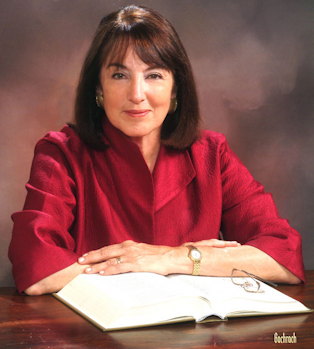presents
THIS DAY IN GAY HISTORY
Collected by Ted
|
May 29 [{(o)}]|[{(o)}]|[{(o)}]|[{(o)}]| [{(o)}]|[{(o)}]
1906 – T.H. White, British author (d.1964); English author best known for his sequence of Arthurian novels, The Once and The Future King, first published together in 1958, Terence Hanbury White, known to his friends as Tim White, may be said to have spent most of his life fleeing from his sexuality, which he feared. "The best thing for being sad is to be learning something," said Merlin in The Sword and The Stone, the first book of White's Arthurian books, and proceeded to spend his lifetime learning and writing. In February 1939, White moved to Doolistown, Ireland, where he lived out the international crisis and the Second World War as a de facto conscientious objector. It was in Ireland that he wrote most of what would later become The Once and Future King; two sequels to The Sword and the Stone were published during this time: The Witch in the Wood (later retitled The Queen of Air and Darkness) in 1939, and The Ill-Made Knight in 1940. In 1958 White completed the fourth book of The Once and Future King sequence, The Candle in the Wind, though it was first published with the other three parts and has never been published separately. According to Sylvia Townsend Warner's 1967 biography, White was "a homosexual and a sado-masochist." He came close to marrying several times but had no enduring romantic relationships, and wrote in his diaries of Zed, a young boy: "I have fallen in love with Zed [...] the whole situation is an impossible one. All I can do is behave like a gentleman. It has been my hideous fate to be born with an infinite capacity for love and joy with no hope of using them." Broadcaster Robert Robinson has published an account of a bizarre conversation with White, in which he claimed to be attracted to small girls. Robinson concluded that this was really a cover for homosexuality. Julie Andrews, the actress, a long-time friend of wrote in her autobiography, "I believe Tim may have been an unfulfilled homosexual, and he suffered a lot because of it." Throughout his life he armed himself against his Gayness by exploring new fields of knowledge and endeavor, whether it was painting or plowing a field, hunting or Irish history, the Arthurian legends, flying or falconry, all of which became the raw material for his many books. White lived to see his work adapted as the Broadway musical Camelot (1960) and the animated film The Sword in the Stone (1963), both based on The Once and Future King. He died of a heart ailment on 17 January 1964 aboard ship in Piraeus (Athens, Greece), en route from a lecture tour in the United States. He is buried in First Cemetery of Athens. In 1977 The Book of Merlyn, a conclusion to The Once and Future King, was published posthumously.
1918 – Massachusetts reduces the maximum penalty for oral sex from 3 years to 2½ years in the house of correction, but still permits 5 years in the local jail.
1944 – Helmut Berger is an Austrian film and television actor. He is most famous for his work with Luchino Visconti, particularly in his performance as King Ludwig II of Bavaria in Ludwig, for which he received a special David di Donatello award. Berger (whose real name is Helmut Steinberger) was born in Bad Ischl, Austria, into a family of hoteliers and he initially trained and worked in this area. At the age of 18, he moved to London, where he did odd-jobs whilst simultaneously taking acting classes. After studying languages in Perugia, Berger moved to Rome. In 1964, he first met Luchino Visconti, whose life partner he later became. Visconti gave him his first acting role in the movie Le Streghe (1967) (in the episode La Strega Bruciata Viva), but he attained international fame playing Martin von Essenbeck in Visconti's The Damned (1969). In this film, in what is perhaps his best known scene, he mimics the role of Lola, as played by Marlene Dietrich in The Blue Angel. However, the role of Ludwig II of Bavaria in Visconti's Ludwig can be considered the pinnacle of his acting career: here he portrays the monarch from his blooming youth, to his dissolute final years. Visconti also introduced him to new people. Musicians and models first (in London), and then Berger was introduced to international artists - conductor Leonard Bernstein, opera singer Maria Callas, ballet dancer Rudolf Nureyev - with whom Berger had an affair; Nureyev was sexually hyper-active, but Berger disliked the Russian's passion for garlic and vodka. Nureyev wanted to live with Berger but he could not give him the security of Visconti. For a short time, Nureyev was his lover, but Visconti was his husband and his father-figure. Visconti's death in 1976 plunged Berger into a deep personal and financial crisis. Visconti's will, in which Berger was apparently named as heir, could not be found. A former friend and companion of Visconti, the director Franco Zeffirelli, has subsequently castigated Berger publicly, accusing him of exploiting his mentor. In addition to a suicide attempt on the first anniversary of Visconti's death, Berger has also had alcohol and drug-related problems. Berger, with his dissipated lifestyle and openly acknowledged bisexuality, has been a welcome guest on talk shows telling for example of erotic adventures with Marisa Berenson, whom he supposedly wished to marry, and Mick Jagger. In 2004, Berger moved from Rome to Salzburg to live with his mother; he denied rumours of financial difficulties, and also declared he had come off all drugs.
In 1984, he was employed by Environmental Science Associates in San Francisco, enabling him to move to the city, which he considered his true home. Mains will be best remembered in the gay community for his groundbreaking book, "Urban Aboriginals: A Celebration of Leather Sexuality" (1984). He also wrote a powerful novel about San Francisco in crisis, "Gentle Warriors." "Urban Aboriginals" was a focused orderly account of the leather sub-culture. "Gentle Warriors" is a murder mystery, but with no single assassin and a host of victims. It is a complex and entirely believable interweaving of many elements of the San Francisco gay and straight forces in conflict brought to a climax by the idea that HIV virus was deliberately designed as a weapon of mass destruction targeting gays. This idea is then turned around to deliberately target those who block the protection of the vulnerable, including gays. Mains died of complications arising from AIDS on June 21, 1989. He was 42 years old.
1947 – The Right Reverend Gene Robinson was born on this date. He is the ninth bishop of the Diocese of New Hampshire in the Episcopal Church in the United States of America. Robinson was elected bishop in 2003 and entered office on March 7, 2004. Prior to becoming bishop, he served as assistant to the retiring New Hampshire bishop. Robinson is best known for being the first openly gay, noncelibate priest to be ordained a bishop in any Christian denomination believing in the historic episcopate. His homosexual feelings were privately acknowledged in the 1970s, when he studied in seminary, was ordained, married, and started a family. While doing an intern year as a chaplain at the University of Vermont, he began dating his future wife, Isabella "Boo" McDaniel. Robinson says that about "a month into their relationship, [he] explained his background and his fears about his sexuality." They continued dating and, as Robinson puts it, "about a month before the marriage, I became frightened that ... this thing would raise its ugly head some day, and cause her and me great pain." Robinson and Boo discussed it and decided to go ahead with the marriage in 1972. He went public with his sexual identity and divorced in the 1980s. Robinson came out to his and Boo's friends and he sold out his part of the business to Boo. They remain friends. In November 1987, Robinson met his partner, Mark Andrew, while on vacation in St. Croix. Andrew was on vacation and worked in Washington, D.C., at the national office of the Peace Corps. On July 2, 1988, Robinson and Andrew moved into a new house and had it blessed by Bishop Douglas Theuner, an event which they considered to be the formal recognition of their life together. Andrew currently works in the New Hampshire state government. He was legally joined to Robinson in June 2008 in a private civil union ceremony, followed by a religious ceremony, both in St Paul's Church, Concord. Earlier, Robinson had said, "I always wanted to be a June bride."His story has appeared in print and film. In 2008, his memoir In the Eye of the Storm: Swept to the Center by God was released. To be gay and lesbian was to be a failure. The good gay people killed themselves. And the others were drug addicts and bums. There was no possibility for a life of integrity or respect. So I feel called to be as open as I can be about my life so that young lesbians and gay men will understand that they can have wonderful relationships, be mothers and fathers and make a real distinction for themselves in their careers. I owe it to those who come after me. - Gene RobinsonIn 2010 he announced his intention to retire in 2013, at 65. His successor is A. Robert Hirschfeld, who was elected bishop coadjutor on May 19, 2012, and consecrated bishop in Concord, New Hampshire, on August 4, 2012. Hirschfeld served with Robinson until Robinson's formal retirement on January 5, 2013. In 2014, Robinson announced his plans to divorce Mark Andrew.
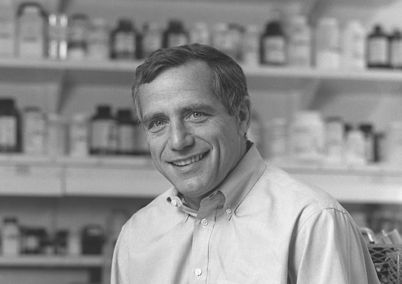
1951 – Dean Hamer is an American geneticist, author, and filmmaker. He is known for his research on the role of genetics in sexual orientation and human behavior, contributions to biotechnology and HIV/AIDS prevention, and popular books and documentaries on a wide range of topics. Born in Montclair, New Jersey, Hamer obtained his BA at Trinity College, CT, and his PhD from Harvard Medical School. He was an independent researcher at the National Institutes of Health for 35 years, where he was the Chief of Gene Structure and Regulation Section at the U.S. National Cancer Institute; upon retirement in 2011 he was designated Scientist Emeritus. Hamer has won numerous awards including the Maryland Distinguished Young Scientist Award, the Ariens Kappers Award for Neurobiology, an Emmy Award, and New York Times author of the year. In the 1990s Hamer began studies on the genetics of human behavior, which led to the first molecular evidence for genes that influence human sexual orientation. His research group's first paper, published in Science in 1993, reported that the maternal but not paternal male relatives of gay men had increased rates of same-sex orientation, suggesting the possibility of sex-linked transmission in a portion of the population. A genetic linkage analysis of DNA samples from these families showed that gay brothers had an increased probability of sharing polymorphic markers on the subtelomeric region of the long arm of the X chromosome, Xq28, providing statistically significant evidence for linkage to the sexual orientation phenotype. Hamer's lab developed several biotechnological strategies to treat and reduce the transmission of HIV/AIDS. As a means to reduce the latent pools of virus responsible for viral persistence, they discovered novel chemical agent to induce integrated virus, and molecularly-engineered immunotoxins to destroy the infected cells. They also collaborated with Osel, Inc. on a novel "live microbial microbicide" approach to HIV/AIDS prevention. By genetically engineering normal vaginal bacteria to produce a potent anti-HIV peptide, significant protection against viral infection was provided in a durable and obtainable fashion for up to one month. The methodology was shown to be applicable to both rectal and vaginal use and is in the initial stages of preclinical testing. Hamer turned to documentary filmmaking to address complex scientific and social issues often overlooked by the mainstream media. In 2005, he and life partner Joe Wilson formed Qwaves with the mission of producing "insightful and provocative films that emanate from the voices of those on the outside, that incite us to abandon our comfortable role as spectators, and that compel us to question and to act." Their films won several awards including winner of the PBS Independent Lens Shorts Festival and Seeds of Tolerance Award. Out in the Silence, the first feature film from Qwaves, was supported by the Sundance Documentary Film Program and premiered at the Human Rights Watch International Film Festival at Lincoln Center. It was broadcast on PBS, where it won an Emmy Award for achievement in documentary. The Out in the Silence Youth Activism Award was initiated in 2011 to highlight the contributions of young people to achieving respect, inclusion and equality for lesbian, gay, bisexual and transgender people.
1953 – The District of Columbia Court of Appeals upholds an "assault" conviction of a man for placing his hands on the private parts of an undercover police officer.
1957 – Openly gay director James Whale died of an apparent suicide. During his career, Whale directed classics such as Frankenstein and Bride of Frankenstein.
1959 – Rupert Everett, English actor, born; a two-time Golden Globe-nominated film actor and former singer. He first came into public attention in the early 1980s when he was cast in Julian Mitchell's play and subsequent film Another Country, playing an openly Gay student at an English public school, set in the 1930s. Since then he has appeared in many other films with mostly major roles, including My Best Friend's Wedding, The Next Best Thing and the Shrek series. From the age of 7 he was educated at Farleigh School, Hampshire, and later was educated by Benedictine monks at Ampleforth College, Yorkshire, but he dropped out of school aged 15 and ran away to London to become an actor. In order to support himself, he worked as a prostitute or "rent boy", for drugs and money as he later admitted to US Magazine in 1997. After Another Country, Everett's carreer sagged. In 1989, Everett moved to Paris, writing a novel, Hello, Darling, Are You Working? and coming out as gay, a disclosure which he has said may well have damaged his career. His career was revitalised by his award-winning performance in My Best Friend's Wedding (1997), playing Julia Roberts' gay friend. In 1999, he played Madonna's best friend in The Next Best Thing, again playing a gay man (he also sang backup on her cover of "American Pie", which is on the film's soundtrack). In 2006, he published his memoir, Red Carpets and Other Banana Skins. In it he revealed he had had a 6-year affair with British television presenter Paula Yates. "I am mystified by my heterosexual affairs, but then I am mystified by most of my relationships," he said, with the article describing him as bisexual as opposed to homosexual. But in a radio show with Jonathan Ross, Everett described his heterosexual affairs as resulting from adventurousness: "I was basically adventurous, I think I wanted to try everything." In an interview on This Morning he simply described himself as homosexual, making a joke of any suggestion he might find a woman attractive. In 2009, Everett told British newspaper The Observer that he wished he had never come out of the closet as he feels that it hurt his career and advises younger actors not to: "The fact is that you could not be, and still cannot be, a 25-year-old homosexual trying to make it in the British film business or the American film business or even the Italian film business. It just doesn't work and you're going to hit a brick wall at some point. You're going to manage to make it roll for a certain amount of time, but at the first sign of failure they'll cut you right off... Honestly, I would not advise any actor necessarily, if he was really thinking of his career, to come out."
1961 – Melissa Etheridge, American musician, born; Academy Award-winning and two-time Grammy-winning American rock singer-songwriter and musician. In 1982, Etheridge moved from Leavenworth, Kansas to Los Angeles to break into the music business. She got some small gigs performing at The Candy Store on the Sunset Strip, as well as two lesbian bars, the Executive Suite in Long Beach and Vermie's in Pasadena. Some of her early fans from Vermie's gave her demo tape to Bill Leopold, a friend's husband who worked in the music business. Etheridge auditioned for Leopold, who was so impressed that he offered to represent her on the spot. As Etheridge continued performing in lesbian bars in Los Angeles, Leopold arranged for music executives to come see her play. Eventually, she caught the attention of A&M Records, who hired her as a staff songwriter. For two years, Etheridge wrote music for A&M and many of her songs were recorded by mainstream artists. In 1985, Etheridge sent her demo to Olivia Records, a Lesbian record label, but was ultimately rejected. She saved the rejection letter, signed by "the women of Olivia," which was later featured in Intimate Portrait (TV series), the Lifetime Television documentary of her life. Etheridge is famous as a gay rights activist, having come out publicly as a Lesbian in January 1993 at the Triangle Ball, a gay/lesbian celebration of President Bill Clinton's first inauguration. She is also a committed advocate for environmental issues and in 2006, she toured the US and Canada using biodiesel. Etheridge had a long-term partnership with Julie Cypher, which made headlines. During this partnership, Cypher gave birth to two children, Bailey Jean, born February 1997, and Beckett, born November 1998, fathered by sperm donor David Crosby. In 2000, Cypher began to reconsider her sexuality and on September 18, 2000, Etheridge and Cypher announced they were separating. In 2001, Etheridge documented her breakup with Cypher and other experiences in her memoir The Truth Is... My Life in Love and Music. In the book, Etheridge recounts that she was molested by her sister, Jennifer, over five years as a child, and mentions an alleged affair Cypher had with k.d. lang. After splitting from Cypher, Etheridge went on to exchange vows in a 2003 commitment ceremony with actress Tammy Lynn Michaels. In October 2004, Melissa Etheridge was diagnosed with breast cancer and underwent chemo. On April 15, 2010 Etheridge and Michaels announced they had separated. In May 2012 it was announced that their two-year child support battle had been settled. In a 2013 interview with CNN after the U.S. Supreme Court's decisions in United States v. Windsor and Hollingsworth v. Perry, Etheridge stated that she planned to marry her current partner Linda Wallem. The couple married on May 31, 2014 in San Ysidro Ranch in Montecito, California, two days after they both turned 53.
1965 – The First Gay Rights Demonstration to be held in front of the White House took place, consisting of seven men and three women.
1979 – Los Angeles outlaws discrimination against homosexuals in private sector employment and in patronization of business establishments in its city. Mayor Thomas Bradley signs bills into effect July 2.
1987 – Congressman Barney Frank came out in an interview with the Boston Globe on this date. He was the second member of Congress to do so. Frank had been party to a call-boy scandal and came out to circumvent further attempts to exploit it.
1975 – David Burtka is an American actor and chef. He also serves as an entertainment news correspondent for E! News. His Broadway debut was as Tulsa in the 2003 production of Gypsy starring Bernadette Peters. He played The Boy in the American premiere of Edward Albee's The Play About the Baby, for which he won the 2001 Clarence Derwent Award for most promising male performer. In 2004, Burtka originated the role of Matt in the musical The Opposite of Sex, and reprised the role in the work's East Coast premiere in the summer of 2006. Burtka made his television debut in 2002 with a guest role on The West Wing; this was followed by guest appearances on Crossing Jordan. In five episodes of How I Met Your Mother the actor played "Scooter", the former high school boyfriend of Lily (Alyson Hannigan). Six months after Burtka's How I Met Your Mother appearance, allegations arose that the actor received the part because of a romantic relationship with one of the series' stars, Neil Patrick Harris. Speculation around this story eventually led Harris to publicly acknowledge that he is gay in a cover story in People magazine. Burtka made no public response to the story, though later Harris stated that he and Burtka were moving in together. Burtka and Harris attended the Emmy awards in September 2007 as an openly acknowledged couple for the first time, an appearance which Harris discussed on The Ellen DeGeneres Show. According to his longtime partner, actor Neil Patrick Harris, Burtka has, as of 2009, quit acting in order to become a professional chef. He graduated from Le Cordon Bleu College of Culinary Arts Pasadena in summer 2009 and afterward began running a Los Angeles catering company, Gourmet M.D. Burtka made a cameo appearance in A Very Harold & Kumar 3D Christmas as himself, sharing a scene with the fictional version of Neil Patrick Harris (played by Neil Patrick Harris). On February 4, 2009, Burtka and Harris appeared for the first time on stage together singing a duet from Rent at a benefit for The LGBT Community Center in New York. The two actors have been together since April 2004. Harris refers to Burtka as "my better half" and "an amazing chef". Burtka and Harris are parents to fraternal twins Gideon Scott and Harper Grace, born on October 12, 2010 via a surrogate mother. Following the passage of the Marriage Equality Act in New York on June 24, 2011, Burtka and Harris announced their engagement via Twitter, stating that they had proposed to each other five years earlier but had kept the engagement secret until same-sex marriage became legal. News sources reported that the two were married in September 2014 in Italy.
1980 – Mark Feehily (born 28 May 1980) is one of the lead singers of the former Irish boy band Westlife. In August 2005, he publicly revealed he was gay during an interview with the British tabloid The Sun. Mark had recognised his sexual orientation when he was 14 or 15 years old. His family, band mates and close friends knew his sexual orientation. Westlife's manager Louis Walsh, however, was unaware of Mark's sexual orientation when he began managing the group.As the only gay member in Westlife, Mark kept his sexual orientation private and never had a boyfriend. Unlike his band mates, Mark did not discuss his private life in interviews, although he had dated women prior to his coming out. In yet another interview, he told The Sydney Morning Herald that despite the fact that the majority of Westlife's fans are female, there had really been no negative reaction. During the interview with The Sun, Mark also announced his romantic relationship with British fashion photographer Kevin McDaid, a member of the now-defunct British boy band V. The pair, who lived together, had been dating since January 2005 after having met at a Cheerios Childline Concert in Ireland. Mark said that while he did not intend on getting married right away, he was happy to know he could form a civil partnership in Britain with the recent passing of the Civil Partnership Act. In December 2007, Mark and Kevin appeared on the cover of Attitude. After five years together, the couple was engaged in February 2010, which was confirmed by Mark himself via the social networking website Twitter. In 2011, Mark discussed the couple's plans concerning having children together and discussed their marriage plans. On 31 December 2011, he announced via his Twitter account that he and Kevin had split up.
1999 – Nevada became the 11th state to ban job discrimination based on sexual orientation.
Richard Fung (b.1954) is a video artist who currently lives and works in Toronto, Ontario. He was born in Port of Spain, Trinidad and is openly gay. His long-time partner is Tim McCaskell, AIDS activist. Fung's work investigates themes of queer sexuality, postcolonialism and issues of diaspora and family. His video pieces include My Mother's Place (1990), Sea in the Blood (2000) and Islands (2002) and have been screened internationally. He received the McKnight Fellowship at Intermedia Arts Centre for Arts Criticism and Asian American Renaissance, Minneapolis-St. Paul (1996) and the Bulloch Award for best Canadian work in the Inside Out Film and Video Festival (1996). In 2001 he won the Bell Canada Award for Lifetime Achievement in Video Art and the Toronto Arts Award for Media Arts.
2003 – Sex columnist, humorist, activist and gay hero Dan Savage successfully Google bombs radical (now former) Republican Senator Rick Santorum with a redefinition of Santorum's distinctive surname: santorum: [pronunciation: san-TOR-um] Function: noun - a sexual neologism for a frothy mixture of lube and fecal matter that is sometimes the byproduct of anal sex. The term was proposed in 2003 to "memorialize" then U.S. Senator Santorum from Pennsylvania, in response to the controversy over Santorum's statements on homosexuality. In an April 2003 interview with the Associated Press, Santorum stated, "If the Supreme Court says that you have the right to consensual (gay) sex within your home, then you have the right to bigamy, you have the right to polygamy, you have the right to incest, you have the right to adultery." Santorum further stated that he believed consenting adults do not have a constitutional right to privacy with respect to sexual acts. As a result, Savage asked his readers to submit new definitions for the term. The word became a successful Google bomb when Savage created a website for it, which unseated the Senator's official website as the top search result for his surname on the Google web search engine. The winning definition was submitted by "Wipe Up That Santorum, Anal Pokers" in Savage's May 29, 2003 column. Votes were collected by e-mail, and the winning definition was announced June 12; Savage concluded by asking for questions about santorum, and urged his readers to get the word out. Savage has said that the winner was a "perfect fit," as there was no prior name for it. Santorum, he explained, is "unwelcome. If you're doing [anal sex] right, it's not gonna happen, and if it happens, it's a bit of a killjoy, which is what it would be if the actual senator strolled into the room." Savage set up a website, spreadingsantorum.com. The site, also known as Spreading Santorum, gives the definition of the term "santorum," under which a brown, splattered stain appears on the otherwise-white page. After this - ahem - splash page, the site features letters to Savage tracking the dissemination of the term. The site includes a video of a person asking Santorum about the term at a town meeting-style forum and a letter that Santorum sent to a man in California outlining his objections to the "obscenity" of the website. Savage considered he had met his goal of "rubbing it in [Santorum's] nose." Santorum was campaigning for the Republican nomination for President in 2012. The high Google ranking of santorum.com in searches for his name has been seen as a problem for him. One reputation management professional who specializes in helping individuals with such issues commented, "It's devastating. This is one of the more creative and salient Google issues I've ever seen."
2004 – On this date U.S. District Judge Nancy Gertner rules that stating that someone is homosexual does not libel or slander them, saying that "a finding that such a statement is defamatory requires this court to legitimize the prejudice and bigotry that for too long have plagued the homosexual community". The ruling came in a lawsuit of James Albright against the singer Madonna: Albright's name had appeared in a photo caption in a book by Andrew Morton about Madonna. Gertner said previous rulings that stating someone is homosexual is defamatory had relied on laws criminalizing same-sex sexual acts, and had to be reevaluated in light of more recent rulings that such laws are Constitutionally suspect.
[{(o)}]|[{(o)}]|[{(o)}]|[{(o)}]| [{(o)}]|[{(o)}] |
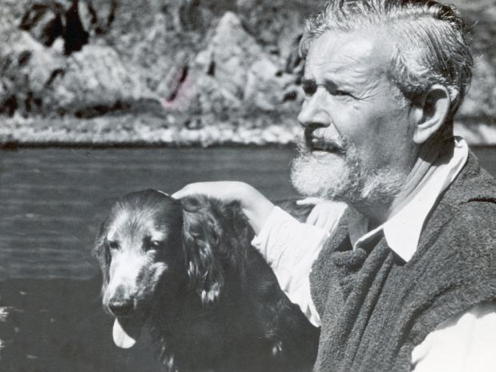

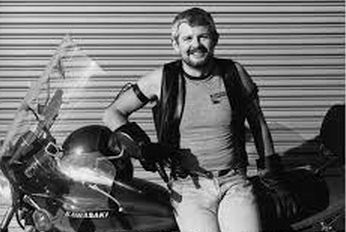
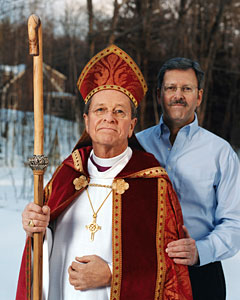 Gene Robinson & partner Mark Andrew
Gene Robinson & partner Mark Andrew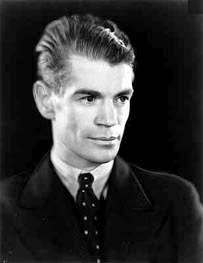
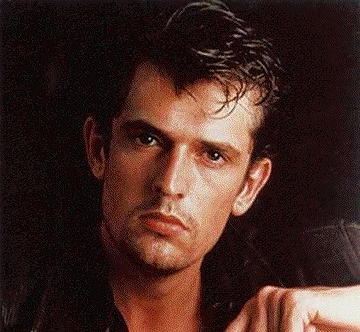
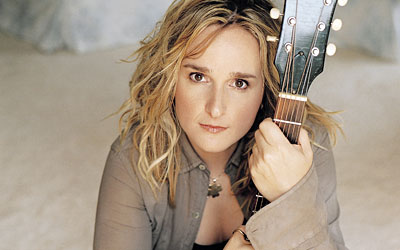


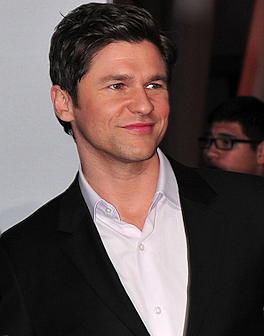
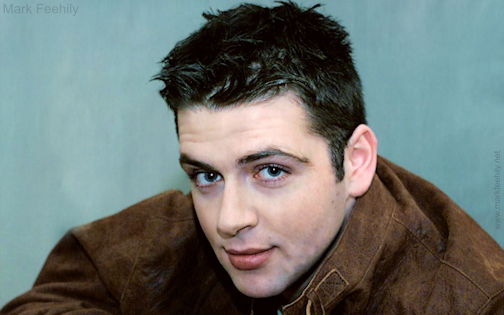


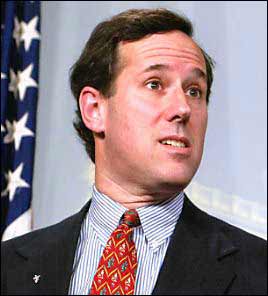 Dan Savage & stunned Santorum
Dan Savage & stunned Santorum